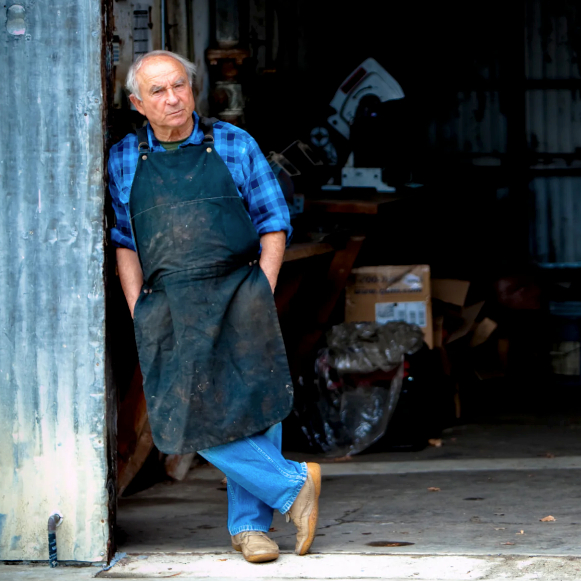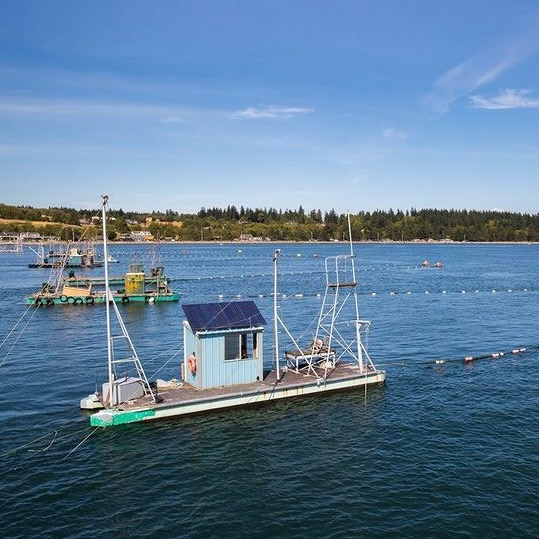Producer


Patagonia Provisions
Contact: Yvon Chouinard
City: Ferndale, WA, 98248
Website: patagoniaprovisions.com
About Us
Why is a clothing company making food? Industrial agriculture depletes soil, poisons water and threatens the outdoor places we love. Protecting the earth, and our future on it, means we need to find a better way. So we make foods that restore the planet instead of destroying it. As our founder Yvon Chouinard says, "People buy a jacket every few years, but they eat several times a day. If we're going to save our home planet, it starts with food."
"To me, Provisions is more than just another business venture. It’s a matter of human survival. I’ve been a longtime doom-bat about humanity’s prospects if we continue on the path we’re on now. As I write this, the pandemic we’re experiencing has warned me that perhaps the days of buying expensive gear and plane tickets to travel halfway around the world to fish, ski, climb and surf may be over, if not greatly reduced. But we still need to eat. In fact, I think the only revolution we’re likely to see is in agriculture, and I want to be a part of that revolution.
In its efforts to maximize efficiency and profit, modern industrial agriculture relies on annual monocrops, toxic herbicides and pesticides, synthetic fertilizer and wasteful water use, all of which are destroying topsoil much faster than it can be replaced. According to the United Nations Food and Agriculture Organization, if we continue to degrade our soil at the current rate, we have only about 60 harvests left. Sixty harvests! Then what?
And what about the food we're eating from this system now? Bland feedlot beef inoculated with antibiotics and growth hormones, factory-raised chickens, pale, flavorless eggs; GMO crops soaked with chemicals; Fruit selected for size and growth rate over flavor or nutrition. Even if we could figure out how to extend the future of industrial agriculture, we do so at great cost: diminishing returns, millions of small farmers out of work, increasing danger to humans and our ecosystem from toxic chemicals and lower nutritional value.
A study published in the Journal of the American College of Nutrition demonstrated “reliable declines” in key nutrients found in 43 different fruits and vegetables over the past half century. Another paper showed that a person would need to eat eight oranges today to equal the Vitamin A our grandparents got from just one. In its review of these and other studies with similar findings, Scientific American states, “the key to healthier produce is healthier soil.”
Big Organic, which started out with good intentions, is now dominated by large companies searching for ways to grow more food and increase profit margins through technology. Sound familiar? If that’s the future, I say good luck trying to make decent wine from hydroponically grown grapes. It seems to me that our priorities have gotten out of whack.
Fortunately, there is a better path forward. Regenerative organic farming practices yield large crops while building healthier soil, which can draw down and store more greenhouse gases. Free-roaming buffalo restore prairie grasslands, one of Earth’s great carbon storage systems. Rope-cultivated mussels produce delicious protein while cleaning the water where they’re grown. Place-based and selective-harvest fishing techniques allow us to target truly sustainable fish populations without harming less abundant species. As these examples illustrate, the more we roll up our sleeves and dig into the world of food, the more we discover that the best ways are often the old ways. We must, as the great environmentalist David Brower taught, “turn around to take a step forward.”
With Provisions, we make that turn and step toward a new kind of future. One filled with deeply flavorful, nutritious foods that restore, rather than deplete, our planet. A future with widespread adoption of Regenerative Organic Certification, which ensures that food is produced in ways that build soil health, ensure animal welfare and protect agricultural workers. In short, I’m talking about foods that are a key part of the solution instead of the problem.
That’s the revolution I want to be a part of. Why is Patagonia making and selling food? The real question, to me, is how could we not? I realize, now more than ever, that the requisites for a thriving business and thriving people are one and the same. Triple bottom line? Food, water, love." --Yvon Chouinard
"To me, Provisions is more than just another business venture. It’s a matter of human survival. I’ve been a longtime doom-bat about humanity’s prospects if we continue on the path we’re on now. As I write this, the pandemic we’re experiencing has warned me that perhaps the days of buying expensive gear and plane tickets to travel halfway around the world to fish, ski, climb and surf may be over, if not greatly reduced. But we still need to eat. In fact, I think the only revolution we’re likely to see is in agriculture, and I want to be a part of that revolution.
In its efforts to maximize efficiency and profit, modern industrial agriculture relies on annual monocrops, toxic herbicides and pesticides, synthetic fertilizer and wasteful water use, all of which are destroying topsoil much faster than it can be replaced. According to the United Nations Food and Agriculture Organization, if we continue to degrade our soil at the current rate, we have only about 60 harvests left. Sixty harvests! Then what?
And what about the food we're eating from this system now? Bland feedlot beef inoculated with antibiotics and growth hormones, factory-raised chickens, pale, flavorless eggs; GMO crops soaked with chemicals; Fruit selected for size and growth rate over flavor or nutrition. Even if we could figure out how to extend the future of industrial agriculture, we do so at great cost: diminishing returns, millions of small farmers out of work, increasing danger to humans and our ecosystem from toxic chemicals and lower nutritional value.
A study published in the Journal of the American College of Nutrition demonstrated “reliable declines” in key nutrients found in 43 different fruits and vegetables over the past half century. Another paper showed that a person would need to eat eight oranges today to equal the Vitamin A our grandparents got from just one. In its review of these and other studies with similar findings, Scientific American states, “the key to healthier produce is healthier soil.”
Big Organic, which started out with good intentions, is now dominated by large companies searching for ways to grow more food and increase profit margins through technology. Sound familiar? If that’s the future, I say good luck trying to make decent wine from hydroponically grown grapes. It seems to me that our priorities have gotten out of whack.
Fortunately, there is a better path forward. Regenerative organic farming practices yield large crops while building healthier soil, which can draw down and store more greenhouse gases. Free-roaming buffalo restore prairie grasslands, one of Earth’s great carbon storage systems. Rope-cultivated mussels produce delicious protein while cleaning the water where they’re grown. Place-based and selective-harvest fishing techniques allow us to target truly sustainable fish populations without harming less abundant species. As these examples illustrate, the more we roll up our sleeves and dig into the world of food, the more we discover that the best ways are often the old ways. We must, as the great environmentalist David Brower taught, “turn around to take a step forward.”
With Provisions, we make that turn and step toward a new kind of future. One filled with deeply flavorful, nutritious foods that restore, rather than deplete, our planet. A future with widespread adoption of Regenerative Organic Certification, which ensures that food is produced in ways that build soil health, ensure animal welfare and protect agricultural workers. In short, I’m talking about foods that are a key part of the solution instead of the problem.
That’s the revolution I want to be a part of. Why is Patagonia making and selling food? The real question, to me, is how could we not? I realize, now more than ever, that the requisites for a thriving business and thriving people are one and the same. Triple bottom line? Food, water, love." --Yvon Chouinard
Practices
Our salmon is harvested by Lummi Island Wild. We harvest wild pink salmon using reef nets, an ancient, selective-fishing technique that allows us to catch the adbundant pinks without harming other species. Pink salmon is the most abundant of all salmon species in the Fraser River system, and comes from wild, self-sustaining runs off Lummi Island, Washington—no farms or hatchery stocks. Each individual fish is handled with utmost care and provides the highest quality pink salmon on the market. We believe reef netting and other ancient, selective-harvest techniques represent the future of the fish industry.
https://www.patagoniaprovisions.com/blogs/learn/the-gift-of-reef-netting
https://www.patagoniaprovisions.com/blogs/learn/the-gift-of-reef-netting
